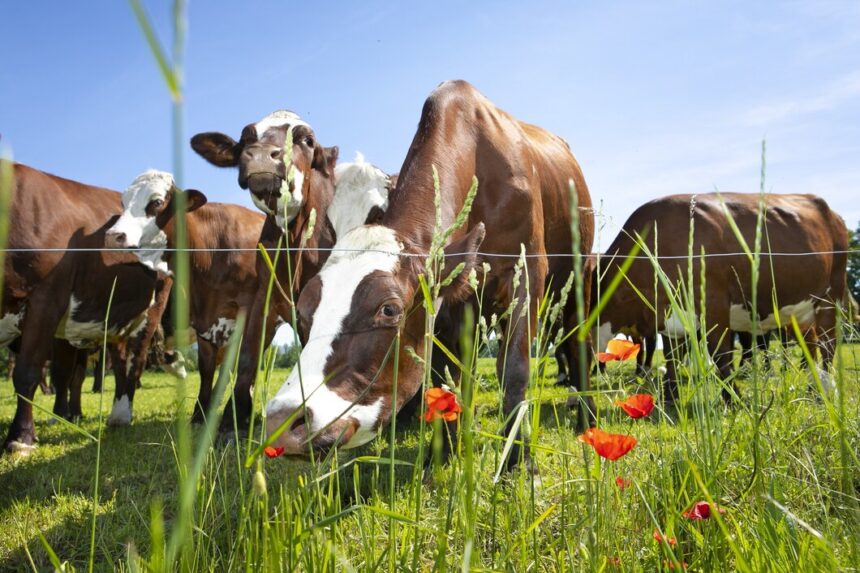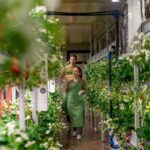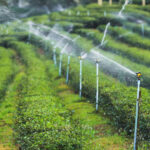In the ongoing quest for a more sustainable and environmentally friendly future, the role of sustainable farming practices has become a focal point of discussion. While there is a growing consensus on the importance of adopting eco-friendly methods in agriculture, opinions about the impact of sustainable farming practices vary. This article delves into the diverse perspectives surrounding the impact of sustainable farming and explores the potential it holds for a greener and more resilient future.
The Green Revolution: A Historical Perspective
The Green Revolution of the mid-20th century marked a significant shift in agricultural practices, emphasizing the use of synthetic fertilizers, pesticides, and high-yielding crop varieties. While it initially led to increased yields and alleviated hunger in many regions, concerns about environmental degradation, soil erosion, and chemical runoff soon emerged.
The Rise of Sustainable Farming Practices
As awareness of environmental issues grew, so did the interest in sustainable farming practices. Sustainable agriculture aims to strike a balance between productivity and environmental stewardship. This approach includes organic farming, agroforestry, precision farming, and other techniques designed to minimize the ecological footprint of farming operations.
Diverse Perspectives on Sustainable Farming: Navigating Controversies
1. Environmental Benefits
- Soil Health: Sustainable practices such as cover cropping, crop rotation, and organic farming contribute to improved soil health. Healthy soils are better equipped to retain water, resist erosion, and support biodiversity.
- Biodiversity: Sustainable farming methods promote biodiversity by avoiding monoculture and encouraging natural habitats. This can lead to increased resilience in the face of pests, diseases, and climate change.
2. Climate Change Mitigation
- Carbon Sequestration: Certain sustainable practices, like agroforestry and cover cropping, contribute to carbon sequestration. This helps mitigate climate change by capturing and storing carbon dioxide in the soil and vegetation.
- Reduced Emissions: Sustainable farming often involves fewer synthetic inputs, leading to reduced greenhouse gas emissions associated with the production and application of chemical fertilizers.
3. Resource Conservation
- Water Efficiency: Smart irrigation systems, a component of sustainable farming, optimize water use by delivering precise amounts based on real-time data. This helps conserve water resources, a critical factor in regions facing water scarcity.
- Energy Conservation: The use of renewable energy sources in sustainable farming operations contributes to energy conservation and reduces reliance on fossil fuels.
4. Economic Viability
- Long-Term Stability: Proponents argue that sustainable farming practices contribute to the long-term economic stability of farms. By maintaining soil health, reducing input costs, and adapting to changing environmental conditions, farmers may experience increased resilience.
5. Concerns and Criticisms
- Yield Challenges: Critics argue that sustainable farming practices may face challenges in achieving the same level of yield as conventional methods. They express concerns about the ability to feed a growing global population using these approaches.
- Transition Period: Some farmers may be hesitant to transition to sustainable practices due to concerns about the initial costs, potential yield disruptions, and the time required for the transition.
The Way Forward: Balancing Trade-Offs for a Sustainable Future
As discussions around sustainable farming practices continue, finding a balanced approach becomes crucial. Recognizing that agriculture plays a dual role—providing essential food while being stewards of the environment—requires acknowledging the trade-offs involved.
1. Integrated Approaches
- Blending Techniques: Integrated farming systems that blend sustainable practices with select conventional methods can offer a compromise. This allows farmers to harness the benefits of sustainability while addressing concerns about immediate yield impacts.
2. Innovation and Research
- Advancements in Technology: Continued innovation in agricultural technology can address challenges associated with sustainable farming. This includes precision agriculture, biotechnology, and data-driven decision-making that enhances the efficiency of eco-friendly practices.
- Research Initiatives: Investment in research initiatives can provide evidence-based insights into the long-term impacts of sustainable farming practices. This knowledge can inform policies, guide farmers, and dispel misconceptions.
3. Education and Awareness
- Farmer Education: Empowering farmers with knowledge about sustainable practices, their benefits, and effective implementation strategies is essential. Educational programs and outreach efforts can facilitate a smoother transition and foster a culture of sustainable agriculture.
- Consumer Awareness: Educating consumers about the environmental impact of their food choices can influence market demand. Supporting sustainably produced food creates a market-driven incentive for farmers to adopt eco-friendly practices.
The impact of sustainable farming practices is a multifaceted and evolving topic that requires a holistic perspective. As we navigate differing opinions, it is essential to recognize that the journey toward a greener future involves trade-offs and continuous adaptation. By embracing innovative solutions, integrating approaches, and fostering education, the agricultural landscape can evolve into a resilient and sustainable model that meets the needs of both people and the planet. In the pursuit of this shared goal, sustainable farming stands as a promising pathway toward a more environmentally conscious and secure future.







